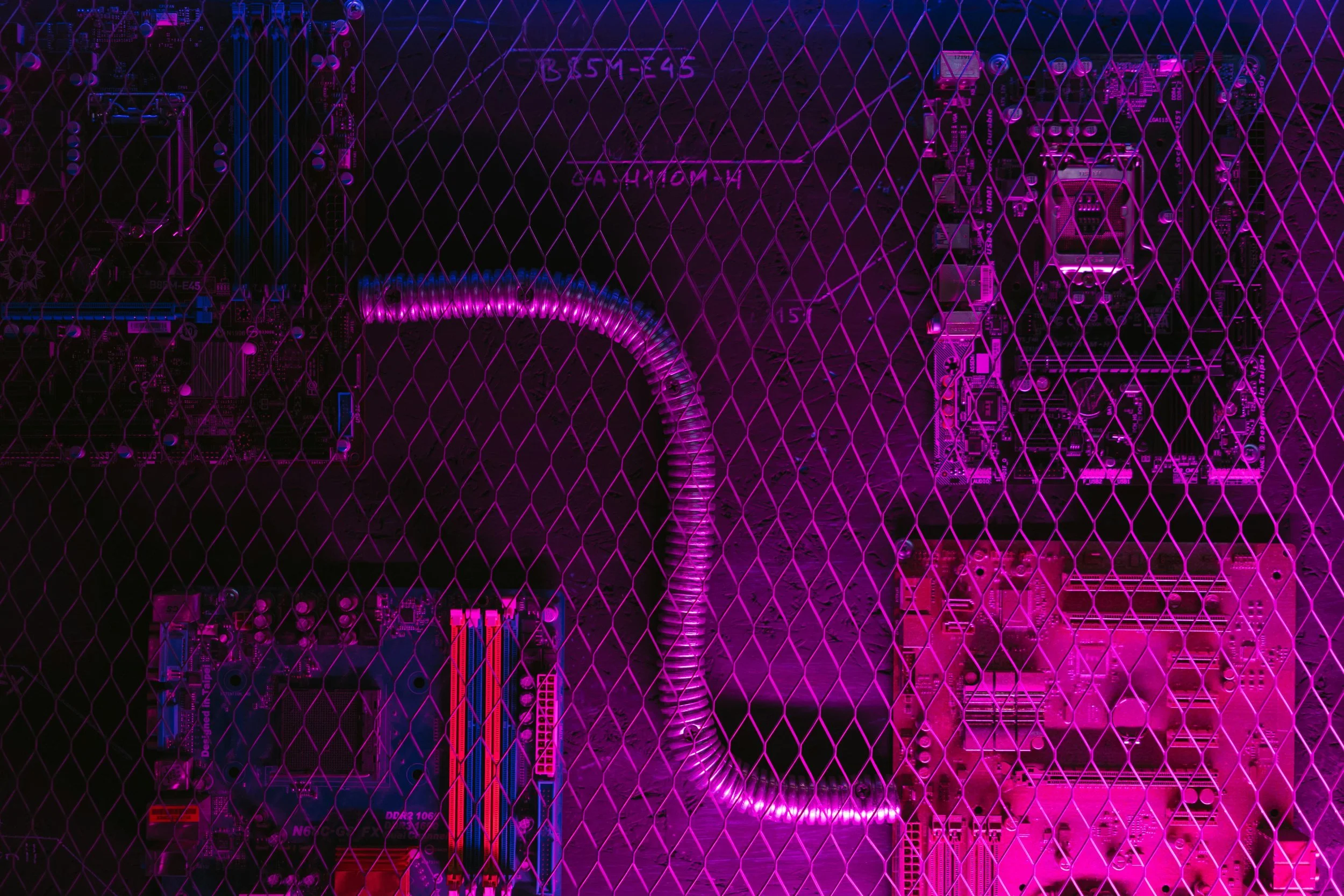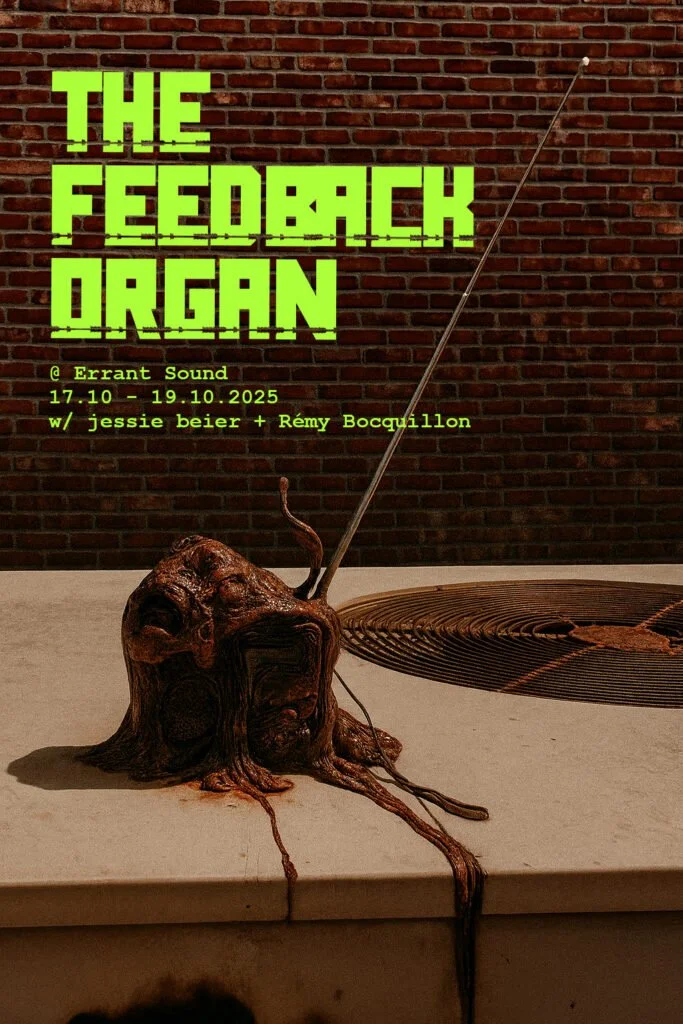This one-day workshop engages participants in prototyping alternative pedagogies that critically and creatively explore the entanglements of computation, care, and contemporary art education. Drawing from conceptual art strategies such as scores, prompts, and performative instructions, participants will collaboratively create and enact a series of lo-fi instructional artworks that foreground aesthetic, political, and material questions about teaching and learning in an age of artificial intimacies.
Artificial Intimacies: Figuring Care in the Age of AI (Talk)
On October 21, I joined the Care Research Lab (University of Cologne / University of Education Karlsruhe) to give an online lecture titled Artificial Intimacies: Figuring Care in the Age of AI..
Artificial Intimacies: Figuring Care in the Age of AI (Talk)
What happens when machines are trained to care? From wellness platforms that track mood and behaviour, to therapeutic chatbots, classroom emotion-recognition software, and the AI girlfriend/boyfriend experience, today’s algorithmic tools increasingly promise intimacy, attentiveness, and support—while simultaneously reorganizing perception, flattening sensation, and quietly hardwiring normative models of emotion, embodiment, and subjectivity. As these systems rush to patch the widening holes in precarious care infrastructures, they do so by running on hidden circuits of energy and data, tied to ever-intensifying regimes of planetary extraction and the spectre of human labour that props up so-called artificially intelligent systems. To figure care in the age of AI is thus to ask how today’s “feeling machines” sense and standardize intimacy, how affective labour is black-boxed into protocols of learning, and how work, energy, and desire are recoded to naturalize some forms of care as authentic, others as artificial. Drawing on recent research-creation projects, the talk weaves theoretical inquiry, artistic experimentation, and pedagogical reflection to investigate care as a site of tension and ambivalence—where intimacy meets infrastructure, tenderness becomes protocol, and collective resistance might be reworked with and beyond the machine.
WATCH THE ONLINE TALK HERE!
The Feedback Organ @ Errant Sound
Performance | Installation | Séance | Sonic Sabotage
Pocket Artist Residency @ Errant Sound (Berlin)
Sat 18th 5-7 pm: "happy hour" and informal Q&A with the artists
Sun 19th 6-9 pm: performative installation, ongoing
Errant Sound is excited to host jessie beier & rémy boquillon´s The Feedback Organ at the Gerichtstrasse 45 (Errant Sound@Miss Read). Join us for "happy hour" on Saturday from 5 to 7 pm to experience the project and chat with the artists in an informal atmosphere. You are also welcome to drop by on Sunday between 6 and 9 pm, to listen to The Feedback Organ in interaction with the artists.
A machine that plays a score. A score that machines a play. A play that scores a machine.
The Feedback Organ is an experimental machine-in-the-making that vibrates across dead air and broken timelines. Equal parts performance, installation, séance, and sonic sabotage, this contraption conjures the long-lost ghosts of pirate frequencies and the unheard-of ghoulies of algorithmic noise. Through a tangled ecology of radios, samplers, tapes, delay loops, and live-coded scripts, this machinic organ—part nervous system, part scrapyard ritual—will pulse and twitch and crawl its way across analogue and digital surfaces, leaving feedback trails and sonic scars in its wake.
Out Now: FluxKit for Energy Transition + Reflector Podcast
The FluxKit for Energy Transition, developed by the Speculative Energy Futures (SEF) team under the Just Powers project, is now available online—alongside Episode 7 of the Just Powers: Reflector podcast, which features several projects I contributed to with some dear collarborators, including Energy Emergency Repair Kit (E.E.R.K.), Paramancy, and Notes from the Energetic Quietus.
Listen to the Reflector Podcast episode here >>>
Learn more about the FluxKit for Energy Transition here >>>
Future Observatory Journal - Issue No2 More Than Human
Check it out! The second issue of issue no. 2 of the Future Observatory Journal — More than Human - is (a)live! Super thrilled to have been invited to contribute the the Worlding section, a forecast that gathers ideas, critiques, and scenarios on more-than-human futures. (Big thanks to Jennifer Cunningham for the invite and for all of her amazing work on the issue!)
The FOJ is an interactive platform that blends research, writing, and design to reimagine how humans live among other species. Alongside Worlding, the Practice section features case studies from artists, designers, and collectives such as Studio Ossidiana, Duane & Raby, James Birdie, Justin McGuirk and Anna Tsing.
Explore the full issue here: Future Observatory Journal
Canadian Art Teacher 20.2
Out now! The latest issue of Canadian Art Teacher / Enseigner les arts au Canada (TWENTY/VINGT 20, vol. 20.2) is now live. This special anniversary issue celebrates 20 years of publishing in the art education community with 20 reflective and creative contributions from artists, teachers, and scholars across Canada.
I contributed some thoughts on hope(lessness) to a new section, Art Educators’ Perspectives in Art Education, organized by guest editor Nancy Long and artist-teacher Cynthia van Frank.
You can read the full issue here: Canadian Art Teacher (and soon on Érudit).
New aAaR Interview Series Just Dropped
The new season of about Art and Research (aAaR) is now live, and I’m thrilled to be part of it!
This video series, hosted by the University of Cologne, invites artists, theorists, and scholars to answer eight questions about artistic research. Think quick takes on big ideas: What is artistic research? What is its value? Why bother? In this economy?!
Summer Reads Feature: Sound Research in Troubling Times
Our edited collection Sound Research in Troubling Times: Hope in Crisis (co-edited with Owen Chapman) was featured in Concordia’s Faculty of Fine Arts “Summer Reads” list. The piece highlights recent publications across design, dance, and sonic research, offering cross-disciplinary insight into creative practices in turbulent times. Grateful to be included alongside such inspiring work.
Split Solstice Record Now Online
In honour of the summer solstice, Split Solstice—a collaborative sound project between Nik Forrest and Owen Chapman—is now available online. I created the artwork for this double lathe-cut record, which captures very low frequency (VLF) signals recorded simultaneously in Gaspé, Quebec, and Lofoten, Norway, on June 21, 2022. These natural and technological electromagnetic sounds were exchanged, composed, and pressed onto a two-record set: one side featuring audio compositions, the other a selection of raw VLF recordings.
Collective Musicking Toward Hope/less Horizons and Horizon/less Hopes - Workshop w/ Annabelle Brault @ 4th Space
Workshop at C-Change Conference 2025
I’m excited to co-facilitate a workshop with Annabelle Brault as part of this year’s C-Change Conference at Concordia University. C-Change 2025 runs from June 14–19 and includes events at Concordia’s 4th Space, Jesuit Hall at the Loyola Campus, a therapeutic farm in North Lancaster, and online via Zoom.
Our session, titled Collective Musicking Toward Hope/less Horizons and Horizon/less Hopes, will take place Monday, June 16, 2025, from 1–3 p.m. Drawing on sonic and visual excerpts from an August 2022 artist residency and performances with the collective Landscape of Hate, we will explore the theme of hope/less horizons and horizon/less hopes through collective sound-making exercises that invite sensing, listening, and imagining otherwise, together.
Rocket Science Room: General Audience Talk
On May 28, 2025, I will join with others at the Rocket Science Room for General Audience #17: ANTIFASCISM for a public conversation on daily practices of anti-fascism — planning to share some thoughts on speculative experiments in pedagogy, desire, and collective care as part of a broader inquiry into what it means to co-compose conditions for nonfascist life today.
General Audience #17: HOW BAD IS IT?
General Audience is back at Rocket Science Room!
General Audience is a community-based, informal lecture series, which provides an opportunity for people to share experience, knowledge, research, creative projects, information, or ideas with each other in a comfortable and friendly environment. Past themes for talks have included: PLAY, SOUND, DATING, GARBAGE, OUTER SPACE, PORNOGRAPHY, FEAR, PRISONS, MAGIC and TASTE.
After a long hiatus due to COVID (and Jessie’s move across the country to B.C.), General Audience Montreal is finally resuming with its 17th event: HOW BAD IS IT? With presentations (in English) from local anti-fascist organizers and thinkers exploring the rise of far-right movements in Quebec and beyond, emphasizing the urgency of resistance. Presentations will highlight both the broader political landscape and the power of everyday anti-fascist practices—through art, community, and conversation—while inviting open discussion in English and French. We hope to see you there!
Carrie Allison Video Collaboration @ FoFA Gallery
On Now! Work by a dear friend and collaborator, Carrie Allison, for Fil conducteur @ FoFA Gallery. The exhibition includes a video titled Our Hands, Our Body, Our Spirit (2022) by Carrie for which I did the sound design. Check out the details below!
Fil conducteur @ FoFA Gallery (March 17-May 23) featuring Work by Carrie Allison
A team of Concordia researchers is exploring how AI can shift art education and pedagogy
A recent Concordia news story on the Learning Machines: Live from the Black Box! Residency
Learning Machines: Live from the Black Box!
On Saturday, February 8, 2024, from 1–2 PM EST, the learning machines presented a one-hour live-streamed performance that dove headfirst into the enigmatic world of AI, algorithms, and computational tools.
During a week-long research-creation residency at Concordia University’s Black Box, we experimented with the unseen mechanisms that shape today’s learning machines—systems that simultaneously reveal and conceal how knowledge is made and how we, as subjects, are formed.
The performance featured a dynamic mix of energetic demands, virtual manifestations, recursive loops, glitched imaginations, machinic dreams, and warped memories as we explored what it means to learn, think, and create alongside today’s algorithmic learning machines.
Watch the DIY, livestreamed performance here! >>>
Out Now! Sound Research for Troubling Times: Hope In Crisis
Very excited to share this project that I made with my dear pal Owen Chapman and many of the folks I had the pleasure of making and thinking with during my postdoc at Concordia University. Check it out here!
/////
This edited collection takes the prompt “hope in crisis” as a starting point for investigating sound research as it is situated in these troubling times. The book brings together thinkers from numerous scholarly domains (i.e. communication studies, art education, creative art therapy, psychology and philosophy) to explore the question of hope as it relates to sonic research-creation practices in/and times of crisis. Importantly, while sound research is explored in this book in relation to hope, it is not offered up as a better way forward, nor is it presented as a solution. Sound research is instead posed as a question, with each author responding in their own way through experiments with the potentials, but also limits, of and for sonic practices. Central to the project, then, is the question of how to collectively and creatively respond to the increasingly difficult— even untenable—circumstances that have come to limit future possibilities, both within fields of research but also beyond, without falling back on the unquestioned assumption that hope alone will actualize a desired otherworld. The sound research gathered here experiments with such possibilities in order to grapple with how present conditions, including conditions for research, are always contingent—always already in trouble—and thus also subject to change both conceptually and materially.
Performance-Lecture w/ Rémy Boquillon @ Tangentiality: Passing Relations in the Arts, Literature, Music, and Performan
Tangentiality: Passing Relations in the Arts, Literature, Music, and Performance
University of Copenhagen, 15 Oct. - 17 Oct. 2024. Organizers: Department of Art and Cultural Studies / Stefanie Heine and Holger Schulze. READ MORE >>>
////
Cursory Touches: Algorithmic Mediation as Tangential Conjuring
jessie beier & Rémy Bocquillon (Assistant Professor, Concordia University Montréal, Art Education & Lecturer, Catholic University of Eichstätt-Ingoldstadt, Sociology)
The tangent – as line, as surface, as volume – is only actualized through encounter. This touching relation is always flee(t)ing, it is one of brief attention, an encounter en passant: the slight touching of shoulders on a crowded street, the longing brush of a hand along a dusty shelf, the skimming over of theories in an academic paper. A digressive departure? Or is it a distracted avoidance? Despite this “mere touching,” imprints, however slight, are left behind; traces are drawn, flows are redirected, desires remachined. The point of contact becomes a point of impact, a singular event wherein differential forces intersect in ways that we can’t see coming, only leaving. Such events carry no specific outcomes or utility, but they can nevertheless make their mark. The tangential relation, as cursory and punctual as it might be, is not indifferent, but emerges in difference. It is an encounter en passant that refuses to merely pass by.
Taking off from this tangential thinking, this collaborative performance-lecture experiments with passing relations as they might emerge, in unforeseen and non-linear ways, through aesthetic practices (where aesthetics refers to sensorial conditioning and perceptual distributions, aesthetics as aisthesis). In this particular occurrence, the invocation of tarot reading as an algorithmic medium turned occulted composition device will be combined with philosophical riffing and sonic computational techniques (such as live coding) in order to experiment with how seemingly codified and codifiable moments of interaction emerge not as causally-entangled relation but instead as “dark precursors” (Deleuze, 1994). Here, we understand the tangential relation as just one form of “aberrant nuptial” (Deleuze, 1994), as just one instance of the subtractive encounters that are enabled between the momentary touching of systems characterized by fundamental difference. It is through this touch that we hope to invoke, or better, conjure, unthought modes of collectivity where the “collective” refers to a sense of anorganic and inhuman multiplicity that deploys itself beyond individual entanglements toward “the side of preverbal intensities, indicating a logic of affects rather than a logic of delimited sets” (Guattari, 1995, p. 9). Through this performance-lecture we want to consider, in witchy ways, how the tangential meeting of “heterogeneous systems of couplings and resonance” (Assis & Giudici, 2017, p. 9) might impact our own thinking, as artists, teachers and researchers of sociology and pedagogy, in yet unthought ways.
A-POSITIONING Project Screening at Concordia
We are thrilled to share our latest collective artistic project with you! We – jessie beier, José Cortés and Veronica Mockler – created a video piece that we premiered at CSEA/SCÉA this summer, which explores questions around art(X)education–it’s reasons, aims, possibilities and frustrations–in relation to what we call A-Positioning.
What: A-Positioning Project Screening + Discussion
Where: Concordia Art Education Graduate Studio (EV5.825), located on the 5th floor of the EV Building (1515 Saint-Catherine St W)
When: Thursday, September 26th from 6:00-8:00 p.m.
About A-Positioning:
The question of art education–what it is, what it does–has been in the mouths of theorists and the hands of practitioners for decades now. While the field is often characterized by and celebrated for its indiscernibility, there remains a stubborn resistance to change at both systemic and subjective levels (Coates, 2020, p. 45). This inflexibility is not just symptomatic of art(X)education’s ongoing institutional standardizations and neoliberal recuperations but also points to a deep sense of frustration in the field, a widespread dissatisfaction fueled by the idea that change is both inevitable and impossible. In this project, we put such frustrations to the test via an art(X)education user dissatisfaction survey that was developed as one way to experiment with the very threshold of what is perceived possible, and thus impossible, within art(x)education practices today. This work was performed, shot, edited and presented in just a few short days during a recent road trip to Halifax for CSEA/SCÉA and features a series of phone conversations with folks who have thoughts on, and as it turns out, frustrations with, art and its education. As just one experiment in a-positioning, this project has got us thinking about strange vantages, partial perspectives, barely audible frequencies, pedagogical personas, and embodied tactics that fly under-the-radar or, sometimes, out the window.
Energy Emergency Repair Kit Book Launch! (Edmonton, AB)
Energy Emergency Repair Kit Book Launch!
Magpie Books, Thursday Oct 3rd, 2024, 7:00 PM - 8:00 PM, Edmonton, Alberta
Join us in welcoming Sourayan Mookerjea and Mark Simpson as they launch E.E.R.K, a fictional manual to help disrupt today’s all-too-real energy and climate emergencies.
Making the E.E.R.K. (a dispatch from Mark Simpson)
Making the E.E.R.K.
By Mark Simpson, co-author of Energy Emergency Repair Kit
It’s 7:40 am on July 24 when the email arrives: “Town of Jasper, Jasper National Park, evacuated due to wildfire.” Two days later, the fire reaches the rustic townsite, burning so fiercely it has created its own pyrocumulonimbus weather system complete with a raging firewall nearly 400 feet tall. By the next morning, over a third of the town has burned to the ground. The devastation’s quicksilver speed is quite simply staggering. While many factors contribute to this wildfire – cuts to the provincial firefighting budget, dead growth left by mountain pine beetle infestation, fire suppression practices, the aesthetics of wilderness that condition and produce how mountain parks are supposed to look – it’s brutally obvious that climate crisis is the driving cause, a fact made all the more painful by Alberta’s status as an obdurately, obtusely climate-skeptical petrostate. Welcome, yet once more, to what Andreas Malm calls the warming condition (The Progress of This Storm 11).
The Energy Emergency Repair Kit, a multimodal, genre-bending manual I’ve created with my comrades in the E.E.R.K. Collective, was written with such harrowing occasions firmly in mind and in view.
5 new tenure-track teachers join the Faculty of Fine Arts
“The Faculty of Fine Arts is introducing five new tenure-track faculty appointments for 2024. The teachers will contribute to the Faculty’s diverse areas of expertise, including cinema, art education, interdisciplinary studies and practices, and studio arts.”





















